Johnny Friskilä has always been interested in travelling and languages and started working as a local guide for German tourists already in high school. Today he works as a freelance tour guide, mainly in Central Asia and neighbouring countries, but also does a lot of private travel.
Johnny has visited around 100 countries in the world, many of which are perhaps more unusual for a tourist to visit. How about Azerbaijan, Turkmenistan, Venezuela, Brunei, Algeria and North Korea?
We have taken the opportunity to ask Johnny about his job as a tour guide, about dramatic experiences during his travels and about tips for those who are also curious to experience slightly different and exotic destinations. If you want to read more about Johnny's travels, you can check out his travel blog. Johnnybaijan.
Innehållsförteckning
Can you tell us a bit about yourself? Who are you and what do you do for a living?
My name is Johnny Friskilä and in addition to photographing and running the blog Johnnybajdzjan, I am self-employed as a freelance tour guide and translator. I've been living in Stockholm since 2002 but originally come from Narvik in northern Norway.
As a tour guide, I accompany Scandinavian travellers to the east, to Russia, Turkmenistan, Iran, Azerbaijan and more. The name of my blog, Johnnybajdzjan, is a play on words because of Azerbaijan and all the countries ending in -stan that I travel to.
How did your interest in travelling start and where did your first trips go?
My interest in travelling has probably been there since I was seven years old and went with my parents on a trip to the Black Sea in the former Soviet Union. In secondary school I was quite good at German and got a job as a local guide for German cruise tourists. That was over 20 years ago.
I made my first trip on my own when I was 17. I went to London and Liverpool for a week. A few months later, when I turned 18, I bought an Interrail ticket and visited pen pals in Hungary, Slovenia and Croatia. That was the summer of 1997. In the autumn of the same year I went to Murmansk in Russia for a year as an exchange student.
My first more adventurous trips were in 2003 and 2004. The first was 7 weeks of backpacking in the Russian parts of the Caucasus and Central Asia. The second was an 8 week trip by land from Stockholm to Pyongyang.
Can you tell us a bit about the job of a tour guide? How do you become a guide and what is the most fun and most difficult part of the job?
I was 16 years old the first time I worked as a local guide in my home town of Narvik. My guide training was a couple of hours in a bus with my boss and other future guides. I was given a script and taught how to hold the microphone. My guide colleagues sometimes told me how they used to do it, gave me tips and suggestions.
At least that's how I started. One thing led to another. A four-hour city tour turned into full-day excursions. I got weekly trips around northern Norway, Sweden and Finland. I worked for a while on cruise ships. I took a tour guide course with Ölvemarks, hoping to be selected as one of their new tour guides on their bus tours in Europe. I was rejected.
A few years later I got the chance again. The company Världens Resor needed a tour guide for its tour of the Caucasus. I knew the region well, having travelled there myself. I knew Russian. Without experience of the region or knowledge of the language, I probably wouldn't have got the job. So even though today there are tour guide schools that charge a lot of money for a training course that may be very good, I don't know, it was language skills and my own travelling that enabled me to freelance and work as a tour guide.
The most fun part of being a tour guide has to be all the wonderful people I meet, both among my fellow Scandinavian travellers and the locals. The journey itself becomes a job. You go to the same country, the same city or up the same mountain, over and over again.
However, it is fun to go more in depth on a city, experience how it can look different from year to year, evolve. It's also fun to use a different camera lens when visiting the same destination for the second time compared to the first. Probably the hardest part of the job is not being able to be at home in my apartment, not being able to socialise with friends or cook my own food.
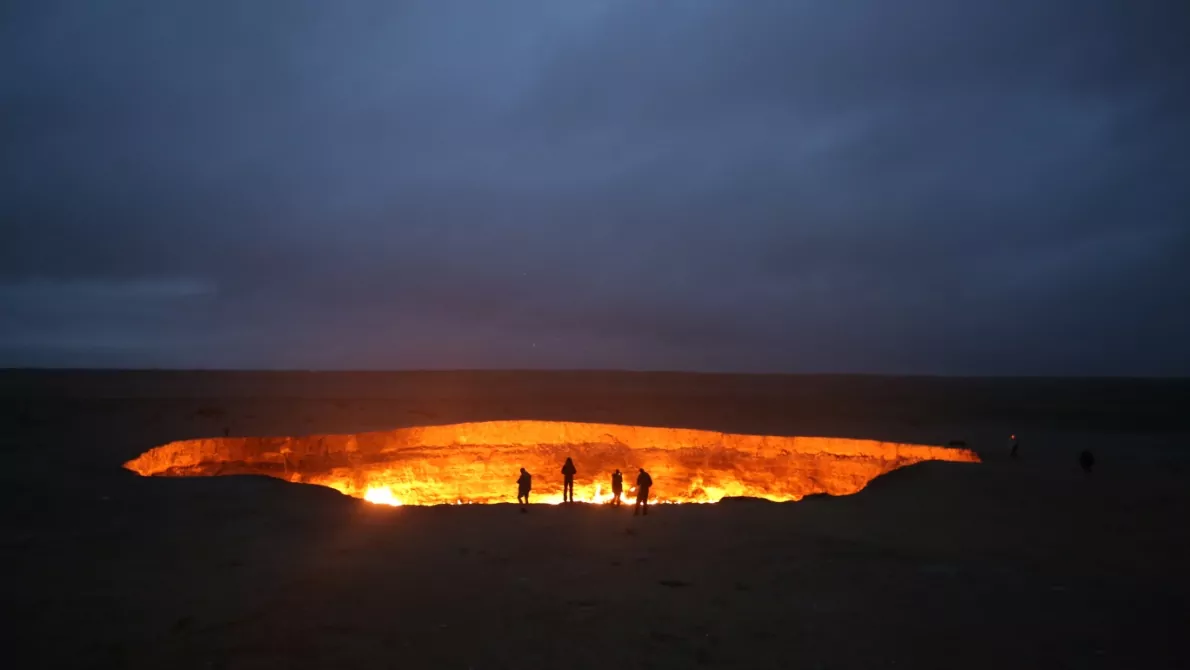
Have you had a mishap or a more dramatic experience during one of your journeys?
On a couple of occasions during my private travels I have been targeted by stone-throwing youths. Being without luggage for four days in Havana was less fun, as getting a toothbrush, toothpaste and underwear in the planned economy of Cuba took a full day.
In Kyoto, I was once thrown out by a jealous couchsurfing host. In the Moldovan breakaway republic of Transnistria they wanted a bribe when I left the area, in Afghanistan they wouldn't let me out, and I had the same experience once in Tajikistan. However, I have never actually paid a bribe in such a context.
My most dangerous experience was not in North Korea, Iran or Afghanistan, but in Paris. Panic broke out in the crowd watching fireworks below Sacre Coeur. I was in the middle of the crowd and I can't believe that someone wasn't trampled to death there. It was life-threatening.
Can you tell us about 3 destinations that you like and think more people should discover?
Georgia with its capital Tbilisi is definitely a destination that could become big in the future. The only reason why it is not already big is probably the lack of direct flights from Sweden. Georgian cuisine is an experience in itself and you get the real thing almost everywhere you go.
Georgian wine is no slouch either, with some claiming that wine as a drink originated in Georgia. Tbilisi has accommodation for all budgets and from Tbilisi it is easy to make day trips to other parts of the country, up into the mountains or out to the vineyards.
Iran may be next. There are direct flights from Sweden and cheap flights with a change in, for example, Istanbul. I don't understand why more people don't go to Iran. Well, yes, I do understand it given the dress code and alcohol ban. But still, you have to look hard to find a nicer country and people. In such a large country there is so much variety and I really look forward to going there again in October this year.
In the end, I think Algeria is a country worth discovering. If there's one country I've visited just once and really KNOW I'll be back, it's Algeria. In a week there, I was probably the only blonde person I saw. People greet each other on the streets. Most things are cheap.
For a photographer, the capital Algiers, but also cities like Oran, Tlemcen and Constantine are real gems. The difference in levels as the cities climb the hills, the mix of French and Arabic architecture, with elements of Berber and Roman. A country whose economy is not at all based on tourism, which is quite difficult to access and bureaucratic to get a visa to. But how beautiful it is when you get there!
What are your top tips for travelling in Central Asia? How do you prepare and what do you need to consider?
There are different definitions of Central Asia, but it is often understood as the five former Soviet republics and now independent countries that all end in -stan: Kazakhstan, Kyrgyzstan, Tajikistan, Uzbekistan and Turkmenistan. Sometimes Afghanistan is also included, sometimes Mongolia and north-west China, Xinjiang.
The variation is therefore extremely large in Central Asia and it is clear, if you want to easily and smoothly graze five countries and at the same time get an experience of a lifetime, then a group trip with me as a tour guide can be a good option.
These group tours do cost a bit, but if you add up flights, food, visa costs, hotels, guides and transport, it's still a fairly affordable option. In Turkmenistan, for example, you are not allowed to travel around on your own without a local guide and driver. Prices can then easily skyrocket, which does not happen on a group trip.
However, if you want to go by yourself, both Kazakhstan and Kyrgyzstan are now visa-free for Swedish and most European citizens. Flying there doesn't have to be expensive either, and Kyrgyzstan almost qualified for the list of the three destinations I think more people should discover. Basic accommodation doesn't have to cost much, and the food and drink budget per day rarely exceeds a hundred dollars in any of these countries. A beer can cost three kronor on an outdoor terrace in Dushanbe.
The most important thing to bear in mind is to make sure that all the formalities are completed before you leave, and to be prepared for the fact that English is only spoken by some and not all, not even in the travel industry. Also, this is Central Asia, not Western Europe, and there is no major tourist infrastructure like in Southeast Asia, for example. Travel with an open mind and accept that sometimes things happen and not as you expect.
What are your travel plans for the near future?
July and August will largely be spent at home in Stockholm. At the end of August, however, the tour guide season begins for me with three different trips. First a trip by boat and then by train from Stockholm, via Tallinn and Moscow to Kazakhstan and Urumqi in China. Then there will be a tour of the Caucasus where we travel around and experience the best of Georgia, Armenia and Azerbaijan. Finally, a tour of Iran.
All these three are all work trips. As for private travel, I'm aiming to go away for a couple of weeks in late November, early December. I haven't bought any tickets yet, but have a few options. One of them is to discover the food and culture of the Punjab province, both on the Indian and Pakistani side. Then I have travel fantasies about Ethiopia and Eritrea, Iraqi Kurdistan and Lebanon, although it's probably a bit too cold in the last month of the year.
Finally, a question we ask everyone we interview: What is your dream destination?
There are many destinations that are dream destinations. Travelling to Yemen with Socotra is one of them, but I'll have to wait for peace first. Another dream of mine is a real tour of Afghanistan. I travelled to Iran and Afghanistan in spring 2011 but due to the security situation in Afghanistan I spent all my days in the city of Herat. Nothing wrong with that, but I would love to see more of the country.
Another, and perhaps more common, dream destination is Antarctica, experiencing the glaciers and penguins up close. A really, really long cruise wouldn't be bad either. Just read books and relax from the world. Or maybe it's called unplugging nowadays?
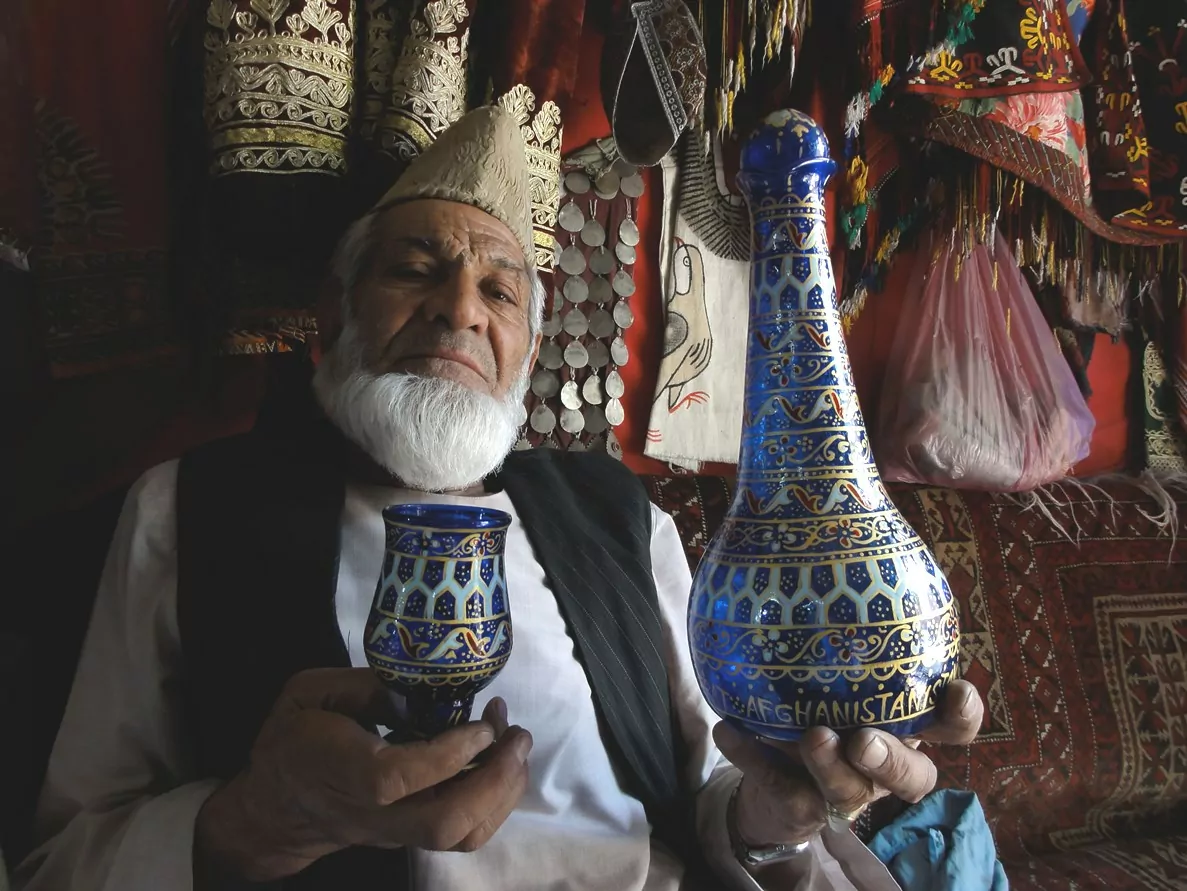
Thank you Johnny Friskilä for sharing your experiences and thoughts!
Top photo: Johnny Friskilä in Madeira, photographer: Ruslan Hamidullo.

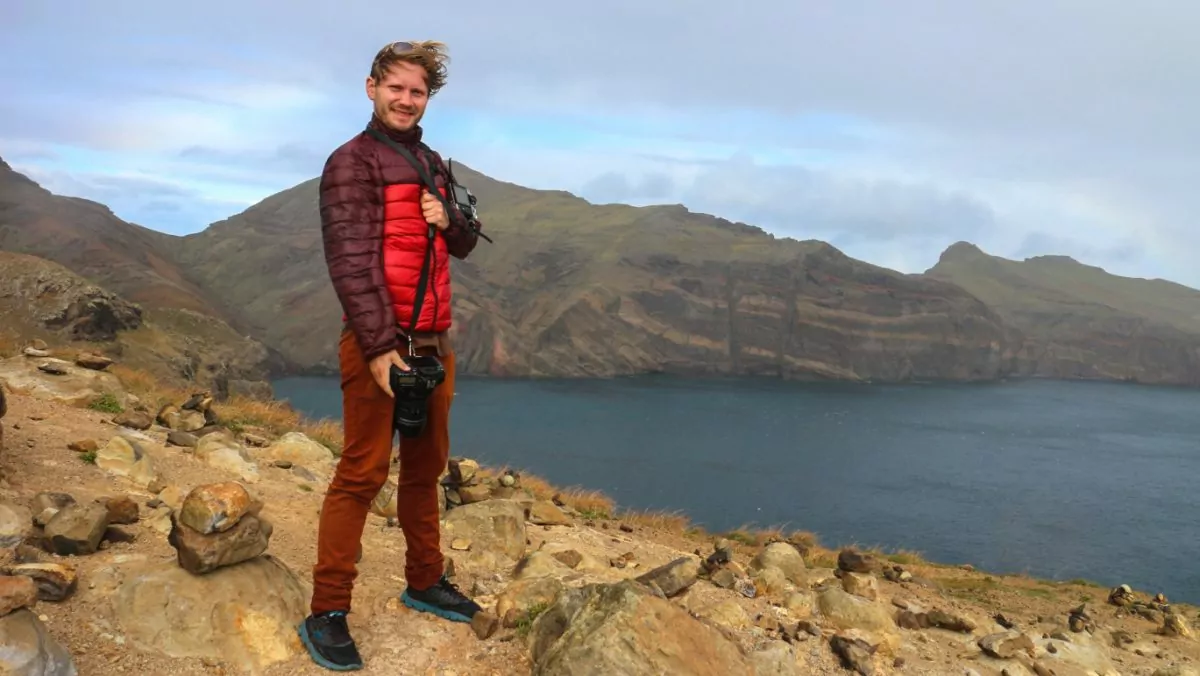
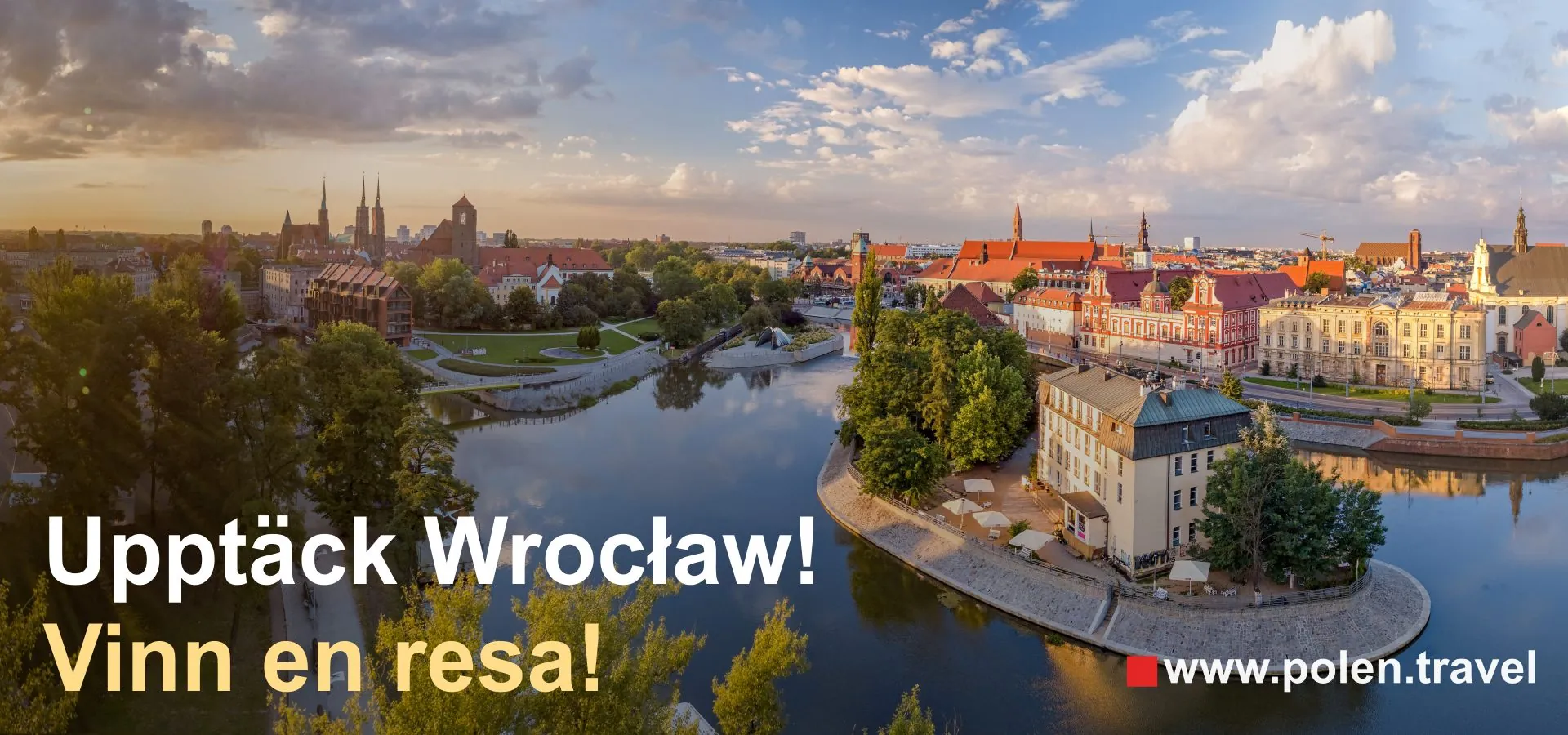






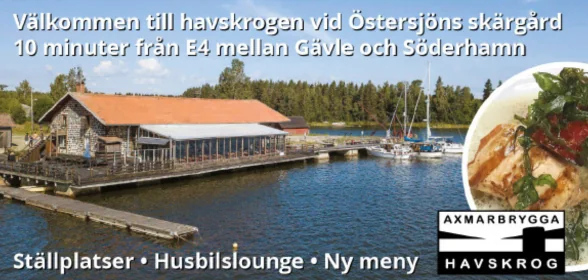
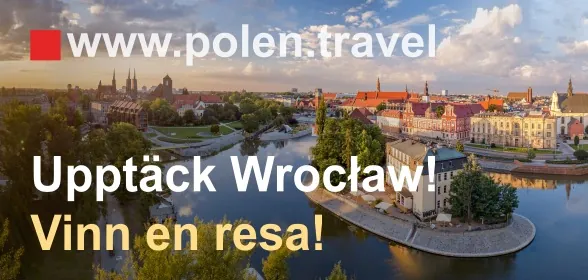
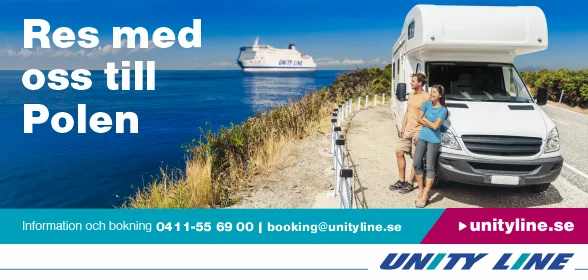
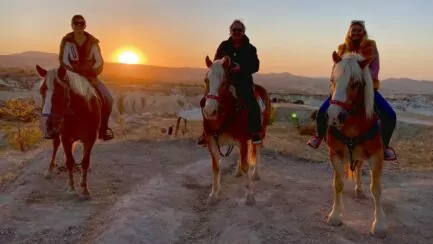
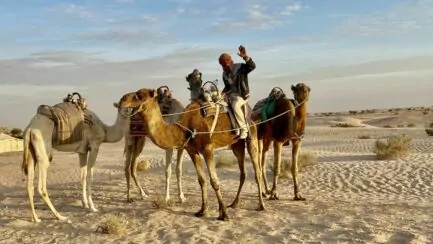
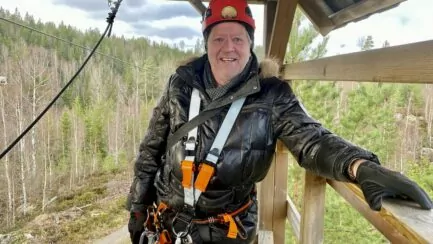
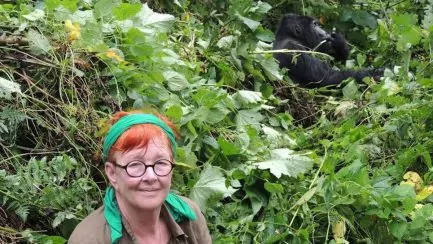
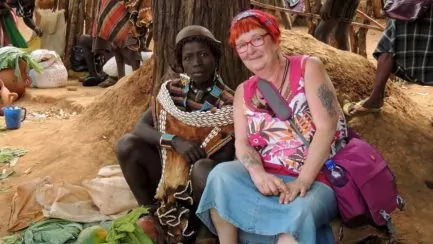
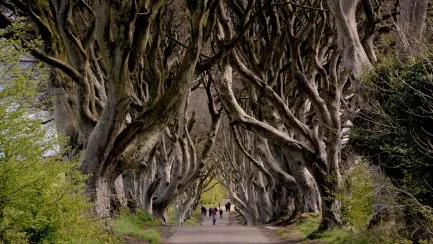



Matts Torebring says:
What a guy, what experiences and what challenges. Freshly dared! I almost feel sorry for everyone, who does not see or have the opportunity, to travel and see so much, which still exists, "so close" around us.
23 July 2016 - 7:40
Ann-Sofie says:
Really quirky and exciting destinations. Even some feel a little too adventurous. Iran, for example, I would probably not travel to, mainly because I am a woman and have some difficulty with the Muslim restrictions. But I like to read about other people's adventures.
23 July 2016 - 9:53
Ama de casa says:
What exciting destinations!
Even though I bit the bullet and passed both the dress code and the alcohol ban in Iran, my dream destination is still Ullared 😀.
Have a great Saturday!
23 July 2016 - 10:28
Veiken says:
What a guy! Sometimes - not often - I wish I was a little younger and do something like this! Wonderful! Thank you for your interviews! <3
23 July 2016 - 11:17
BP says:
What a great post! Incredibly interesting reading about different destinations, to say the least. Personally, however, I don't know if I would want to follow the dress code and drink tea in Iran....
I mean many countries, including Afghanistan, I wouldn't dare to go there at all because of the political uncertainty.
23 July 2016 - 13:12
Marianne - Glimt av verden says:
This interview series is so great! I totally agree that both Georgia and Central Asia are great destinations that more people should discover.
23 July 2016 - 13:36
Geddfish says:
What a guy! Almost takes my breath away when I read about all the dangers. But there are people like that, people who seek the optimal and incredible.
Thanks for the exciting interview and I don't know if I would want to travel in that direction. Worth thinking about 😉
23 July 2016 - 14:24
Netti Starby says:
This was really interesting to read and what an exciting journey 😀 Hugs!
23 July 2016 - 15:44
Renates Reiser says:
Exciting and interesting reading! I already follow his inspiring blog and dream away in his exotic destinations.
I have booked a trip to four of the five countries in Central Asia in September, so I'm really looking forward to it! However, it will not be a group trip, so I will almost have to manage on my own. That in itself could be an adventure! :p
23 July 2016 - 15:49
admin says:
Matts, it's amazing what you can experience and learn when travelling!
Ann-Sofie, I've actually been curious about Iran for a long time, but on the other hand, I've heard that our blog is blocked there... so apparently I can't blog if I go there....
Ama de casa, haha, I have neither been to Iran nor Ullared. I actually want to go to both, but I have to admit that Iran attracts a little more 😉.
Veiken, glad you enjoy our interviews! 🙂
BP, glad you like the interview! I would probably love to go to Iran despite the dress code and alcohol restrictions, but then there was that thing about our blog being blocked... 😉.
Marianne, glad to hear you like our interview series! We haven't been to Central Asia ourselves (unless you count Mongolia) but it sounds exciting and interesting!
Geddfish, glad you enjoyed the interview! And not everyone has to be attracted to the same destination 😉.
Netti Starby, glad you enjoyed the interview!
Renate, but oh so exciting! I will definitely follow it on your blog! 🙂
23 July 2016 - 19:53
Lovisa says:
So exciting to read! Fantastic that he has had time for so many trips, gets a little jealous hehe. But I will definitely put Algeria on my list of future travel destinations!
23 July 2016 - 20:15
4000mil says:
Mmmm also waiting for it to be possible to travel to Socotra...
23 July 2016 - 21:07
Cathinka says:
Really exciting destinations! Iran is high on the wish list. Must admit that I had to google Socotra.... what a place! I want to go there too.
23 July 2016 - 23:03
Lina says:
Wow, how inspiring and cool 🙂
24 July 2016 - 10:18
Johnny Friskilä says:
Thank you Helena and Peter, it was a great interview if I may say so myself! Thought I would take the opportunity to answer some of the nice comments that have come. Firstly, thank you to everyone for such positive words - it warms.
Certainly, travelling in Iran can have its limitations. As a female traveller in Iran, you have the advantage of being able to take part in both the female and male spheres of society. As a foreign man, you can only take part in the male one. In this way, the restrictions for men are probably greater. However, men do not have to cover their hair or wear shirts that also cover their buttocks, which is necessary for women. The women I have spoken to who have travelled in Iran have not seen the dress code as a problem. However, you have to accept it - if you do not accept it on principle, it is better not to travel.
Iran is also a country that is relatively easy to travel around by yourself. If you go on a group trip, most things are planned in advance and then age is not a problem either. However, such trips are not free unfortunately.
As for Afghanistan, I went there in 2011. I only went to one part of the country (western region) and chose my routes carefully after much research. In general, the security situation today is probably worse than it was in 2011, and no, if you feel unsafe, you should not go. If someone had offered me a trip there today, I honestly do not know what I would have answered. I would probably have spent a few days researching first.
And to admin: Iran has restrictions on the internet and many sites are blocked. However, this can usually be solved by using a vpn client on your computer, which Iranians are experts at because they use them all the time. Then you can blog. I'll have to check how to do it on my computer before I leave.
24 July 2016 - 17:27
Ditte says:
Really exciting, interesting and fun reading! What a guy and I think it's great to do what you want. Of course, the journey there and probably also the coming one has required a lot, but I like the idea completely. These countries described are a part of the world where I am completely unfamiliar and probably will remain so.
(But I have visited North China and Algeria, which were mentioned in the interview).
Many countries seem both exciting and interesting, but I reject the countries where women's limitations are evident.
As far as adventure travel is concerned, I'm still content with my dream destination, which is Antarctica.
24 July 2016 - 17:28
admin says:
Cathinka, I also had to google Socotra actually 😉 Had never heard of it but seems interesting!
Johnny, thank you for joining us! Very interesting interview and I am, as you know, curious about these countries! And yes, it may be a vpn client if we go to Iran sometime!
24 July 2016 - 17:39
ExklusivaMoi says:
Ooooh how excited you get from travelling... however, I have 2 destinations in mind and that is to hike the Inca Trail and the Himalayas, I'm even more excited now *S*.
Narvik is something I have in mind to go too...
24 July 2016 - 20:33